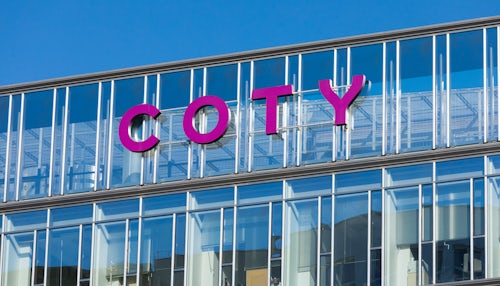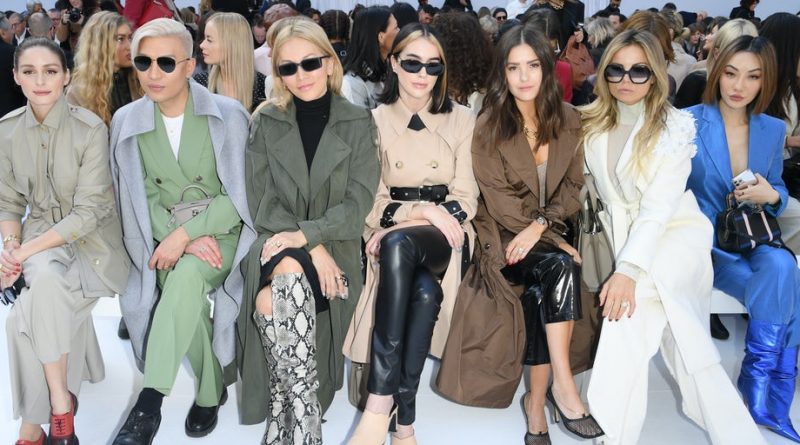Who Are Fashion Shows For? | BoF Professional, This Week in Fashion
The duelling organisers of New York Fashion Week, IMG and the Council of Fashion Designers of American (CFDA), appear eager for the industry’s trade to see shows in person this fall, with IMG’s line-up sponsored in part by the home improvement store Lowe’s, including Jason Wu, Rebecca Minkoff and other calendar mainstays.
On Tuesday, New York Governor Andrew Cuomo announced that the bi-annual event, which generated millions of dollars in revenue for the city pre-pandemic, would be permitted to take place, as long as participants were in “strict compliance” with New York health and safety guidelines. That means that outdoor events are capped at 50 people, and indoor events are capped at 50 percent of a venue’s capacity. No spectators — the onlookers that stand outside show venues, hoping to catch a glimpse of the action — will be welcome.
Next week, organisers in Paris, the most important fashion week of all, will share their calendar plans, just as coronavirus cases began climbing once again in France. But while few major names appeared on the New York roster, Europe’s will be filled with multi-billion-dollar businesses that the trade, specifically editors and buyers, hate to disappoint.
Choosing to skip Milan Fashion Week or Paris Fashion Week, even if it’s a way to protect yourself against contracting Covid-19, isn’t so easy for some. For one, many magazines are desperate to win back the advertising dollars of these big brands, and attending their fashion shows, and covering them online and in-book, has long been a way for editors to communicate their loyalty and devotion to a brand without engaging in outright pay-to-play behaviour. Buyers, too, wanted to see the clothes in person — in their case, it was because they would be purchasing them for their stores.
And fashion month, perhaps more than anything, is a weeks-long social function. A time for networking, peacocking and simply spending time together as an industry. The deep fear of a missing out is real.
But while a majority of the trade will choose to stay home this season as a precaution, the question remains whether it makes sense for them ever to return.
Fashion week and fashion shows will indeed go on. But their purpose has changed. The big brands, the ones who attract the biggest crowds, no longer need traditional media and retailers the way they once did. Their marketing budgets are allocated to Instagram and online customer acquisition, or paid out to influencers, whose audiences shop their recommendations. When it comes to retail, most major fashion players are focused on their own sales channels, working with just a select number of multi-brand stores — if any at all.
Brands don’t need so many editors at their shows, or so many buyers, either. The public’s need for fashion critics, who used to have the power to make or break a collection’s success, has shrunk. Unlike a film or television series or album, it does not take a consumer hours of time — or any money at all — to view a fashion collection online and make their own snap judgement regarding whether they like it or not.
Fashion shows have always been about marketing and selling a product. Post-vaccine, they will be about marketing and selling a product directly to a customer. Expect that shows will be smaller, and the front row filled with influencers who can help amplify the marketing message across the globe. This shift has been under way for a while, but the pandemic has given brands permission to move more quickly: smart business decisions are now overriding the status quo.
If a brand is going to stage a large show, the customer will be at the centre of it, whether they are invited with the expectations that they will spend thousands of dollars pre-ordering collections, or whether they are sold tickets as if attending a rock concert.
There will be less and less room for the traditional trade, many of whom are used to expensing thousands of dollars a year — sometimes hundreds of thousands — on flights, hotels and dinners at Caviar Kaspia because they believed the return on investment made all that extravagance worthwhile. That return has been diminishing for years — and publishers and retailers can no longer afford to justify such investments.
The front row, whether fashion is ready for it or not, is going to look very different a year from now. The strangeness of this season is only the beginning.
THE NEWS IN BRIEF
FASHION, BUSINESS AND THE ECONOMY

Rag & Bone Autumn/Winter 2020 show during New York Fashion Week | Source: Getty Images
New York Fashion Week to go ahead with restrictions. Indoor events can take place at 50 percent capacity, while outdoor shows will be capped at 50 people. The CFDA has announced a digital events platform, Runway 360, which will feature 60 designers including Jason Wu and designers from Harlem Fashion Row who will showcase their Spring/Summer 2021 collections on the online platform through a selection of different formats that can include lookbooks, movies, or livestreamed shows.
Tiffany & Co. reports better than expected quarterly profit. The luxury jeweller said worldwide sales in August so far were slightly positive from a year earlier, as the rebound in second-quarter sales in China extended into the current quarter. Tiffany reported earnings of $31.9 million in the three months ended July 31, down from $136.3 million a year earlier. Meanwhile worldwide sales declined by 29 percent to $747.1 million, missing estimates of $772 million.
Nordstrom reports 53 percent dip in brick-and-mortar sales. The Seattle-based company’s online sales also fell 5 percent in the quarter ending on August 1. Nordstrom posted second-quarter net sales of $1.78 billion, compared with $3.78 billion, a year earlier, and reported an overall net loss of $255 million. Like many retailers, Nordstrom has been hit hard by store closures and lockdown measures. J.C. Penney, Neiman Marcus, Brooks Brothers have all filed for bankruptcy in the last few months.
Richemont chairman warns company must be cautious with cash. Johann Rupert said the pandemic hit the watch and jewellery maker’s cash flow, making it necessary to halve its dividend to 1 Swiss franc per share. Rupert also said Richemont is making changes to its board of directors and is planning an overhaul designed to update the company’s business model with a more digital-first focus.
Hudson’s Bay Company reportedly scraps financing plan. The owner of Saks Fifth Avenue dropped plans to raise up to $900 million in debt after prospective investors requested a higher interest rate than the company was willing to pay, sources said. The pulled bond offering indicates the possible risks of lending to brick-and-mortar retail chains in the US, even as stores reopen.
Saks Fifth Avenue faces eviction in Miami over $1.9 million in unpaid rent. The department store owner told its landlord this month that it couldn’t make lease payments due to the effects of the Covid-19 pandemic. But Bal Harbour, Saks’ landlord, said the department store made more sales in June 2020 than it did in the same month last year. Even so, retailers in Miami have suffered significantly due to the slowdown of tourists in the area.
Neiman Marcus closes yet another store. This will be the department store’s fifth brick-and-mortar closure as part of its Chapter 11 reorganisation plans. In an attempt to reduce its debt load, Neiman Marcus has shuttered its 130,000-square-foot store in the Mazza Gallerie shopping centre in Washington DC in addition to 17 out of 43 Last Call outlets.
J. Crew wins bankruptcy exit approval. To do so, it’ll swap more than $1.6 billion of old secured debt for ownership in the company. The retailer aims to be out of bankruptcy by September with a new $400 million credit facility and a range of new owners including Anchorage Capital Group LLC, Davidson Kempner Capital Management LLC and GSO Capital Partners LP, according to a statement. The proposal will also turn J. Crew’s bankruptcy loan into $400 million of term loans.
KCD and CAA announce joint venture. The full-service fashion communications firm and entertainment agency will retain their own businesses while pooling resources to pursue new projects together. CAAxKCD will be helmed by KCD’s Rachna Shah, Jarrad Serafine-Clark and Laura Birbrower together with CAA’s Christian Carino, Josh Otten and Alex Varga. As much as the partnership signals new content opportunities for the future, it has also come out of the challenges that the pandemic has caused for those in fashion and entertainment.
Real estate investors skip paying loans while raising billions. The economic fallout from the coronavirus has devalued some real estate while also creating new targets for these cash-loaded investors. Shopping malls have been one of the biggest losers during the pandemic. Retail debt turned over to special debt aid services is at the highest level since 2010, according to industry tracker Trepp. Instead, investors are looking for opportunities in “digital” real estate.
LVMH and Tiffany push back deal deadline. The French luxury goods giant and US jewellery chain will give themselves another three months to complete their $16.2 billion tie-up. The initial deadline was August 24 with the provision that one party could push it back to November 24. Tiffany is reportedly now exercising the option to apply November 24 as the ultimate deadline.
New Look puts latest restructuring proposal to landlords. The UK retailer seeks turnover-based leases at 402 stores to cut costs and ensure its survival. New Look, which is pivoting to a turnover rent model after it was forced to close stores as a result of nationwide lockdowns, said its proposal would need approval by landlords and unsecured creditors by September 15. The retailer is counting on the renegotiated rent proposal to go through in order to implement a recapitalisation plan it has already secured.
Dick’s sales surge as consumers snap up sporting goods. The key retail metric of same-store sales surged 21 percent — more than double the estimate of analysts compiled by Consensus Metrix. Sales and profit also beat forecasts and were the strongest ever for a second quarter. The results serve to highlight the divide that has emerged in the retail world, with mass retailers booming while department stores struggle.
THE BUSINESS OF BEAUTY

Coty office building | Source: Shutterstock
Coty quarterly sales drop 56 percent. The cosmetic company’s net revenue fell to $922.1 million, missing expectations of $1.34 billion. Coty reported a 56 percent decline in sales as the coronavirus-induced lockdowns and store closures battered demand for its beauty products. Coty is now planning to sell or shutter most of its factories and outsource more operations to deal with the impact of the pandemic.
Warby Parker raises $245 million in funding. The latest round of financing brings the direct-to-consumer eyewear giant’s valuation to $3 billion according to people familiar with the matter, almost twice its reported $1.75 billion in March 2018. Warby Parker’s affordable, health-related product offering leaves it poised to fare better than other DTC brands. However, the question remains as to how (or when) the brand will make an exit, following statements by co-Chief Executive Neil Blumenthal in 2018 that an IPO was on the horizon.
PEOPLE

Kelley Carter | Source: Courtesy
Kelley Carter named Bloomingdale’s new home fashion director. Carter, who previously held editorial roles at publications like O Magazine, O at Home, Real Simple and Refinery29, has been named home fashion director of Bloomingdale’s effective immediately. Carter will be responsible for trend forecasting and grow Bloomingdale’s home department in areas like home textiles, housewares, furniture and luggage categories. She will report to Kevin Harter, vice president of integrated marketing and fashion direction at the department store.
Kevin Mayer steps down as TikTok CEO. Mayer announced that he is leaving the company following threats by Trump of a US ban on TikTok after just a few short months in the role. The move comes as the world’s largest startup faces ongoing disputes with the Trump administration regarding the sale of its US operations, a nationwide ban in India and potential restrictions in the UK. A successor is yet to be named.
Alicia Boler Davis named Amazon’s first Black executive in ruling council. Boler Davis, who as vice president of global fulfillment is responsible for much of Amazon’s warehouse network, was among the three people promoted to Amazon’s S-team, the group of executive who set the company’s priorities alongside Chief Executive Jeff Bezos. This marks the second executive shuffle in the last year to elevate women at the company, following criticism of its largely white, male upper ranks.
MEDIA AND TECHNOLOGY
WeChat users sue to block Trump’s ban of messaging app. The group of lawyers claim Trump’s “vaguely worded” executive order violates WeChat users’ free speech and due process rights. They also linked Trump’s order to recent anti-Chinese comments, including blaming China for the coronavirus pandemic. US companies with operations in China have said the WeChat ban would hurt business as the app is an important tool used by many Chinese consumers to conduct various shopping transactions.
The Hut Group poised to launch $5.9 billion London IPO. The deal could be priced by mid-September and is likely to raise around £1 billion through the sale of new and existing shares, according to sources familiar with the matter. The British e-commerce firm’s listing would boost a sluggish European IPO market as muted investor sentiment caused listing volumes to hit their lowest in eight years.
Compiled by Daphne Milner.
BoF Professional is your competitive advantage in a fast-changing fashion industry. Missed some BoF Professional exclusive features? Click here to browse the archive.

